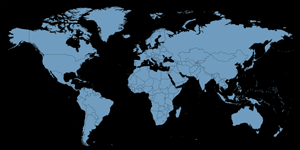Global Issues


South Africa
• Source, transit, and destination country for men, women, and children subjected to forced labor and sex trafficking.
• The tradition of ukuthwala, the forced marriage of girls as young as 12 to adult men, still practiced in some remote villages.
• Local criminal rings and street gangs organize child prostitution in a number of South Africa’s cities.
• Syndicates recruit and transport South African women to Europe and the Middle East.
• Nigerian syndicates dominate the commercial sex trade.
• South African trafficking victims discovered in Macau.
• Women and girls from Thailand, Cambodia, the Congo, India, Russia, Ukraine, China, Taiwan, Mozambique, and Zimbabwe subjected to prostitution. Some transported to Europe for forced prostitution.
• Suspected witchcraft sometimes resulted in assault, forced exile, and killings, particularly of elderly women.
• 33% of reported rapes of girls were perpetrated by a teacher.
• Studies suggest South African women who have experienced partner violence are more likely to contract HIV.
• 12.5% of women report intimate partner physical violence in their lifetime.
• 4.4% of women report intimate partner sexual violence in their lifetime.
• 3.7% report abuse during pregnancy.
• Rape, including spousal rape, is illegal but remained a serious and pervasive problem.
• According to the 2009-2010 South African Police Service annual report, there were 55,097 cases of rape and indecent assault during the year; many of the victims were elderly women.
Advocacy:
• Faith-based organizations and charities provide care to trafficking victims in facilities that helped victims of domestic abuse, gender-based violence, rape, and sexual assault.
Sources: United Nations Development Fund for Women; UN Women Violence against Women Prevalence Data: Surveys by Country 2011; U.S. Department of State 2010 Human Rights Report, U.S. Department of State Trafficking in Persons Report 2011.
